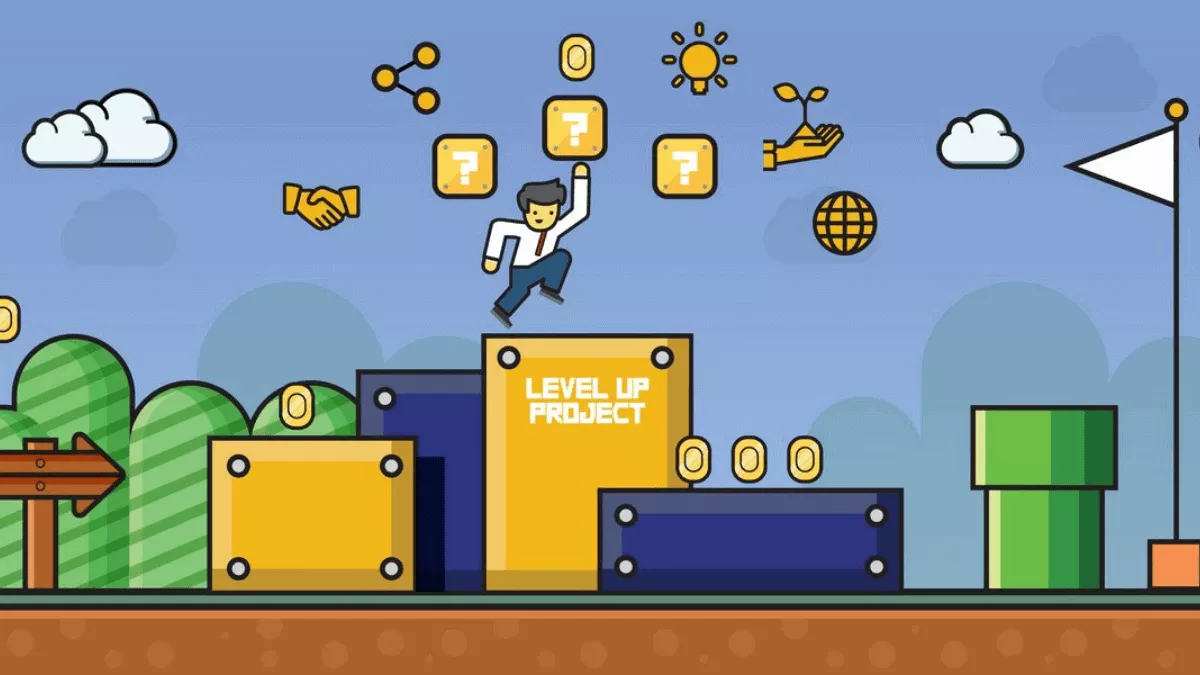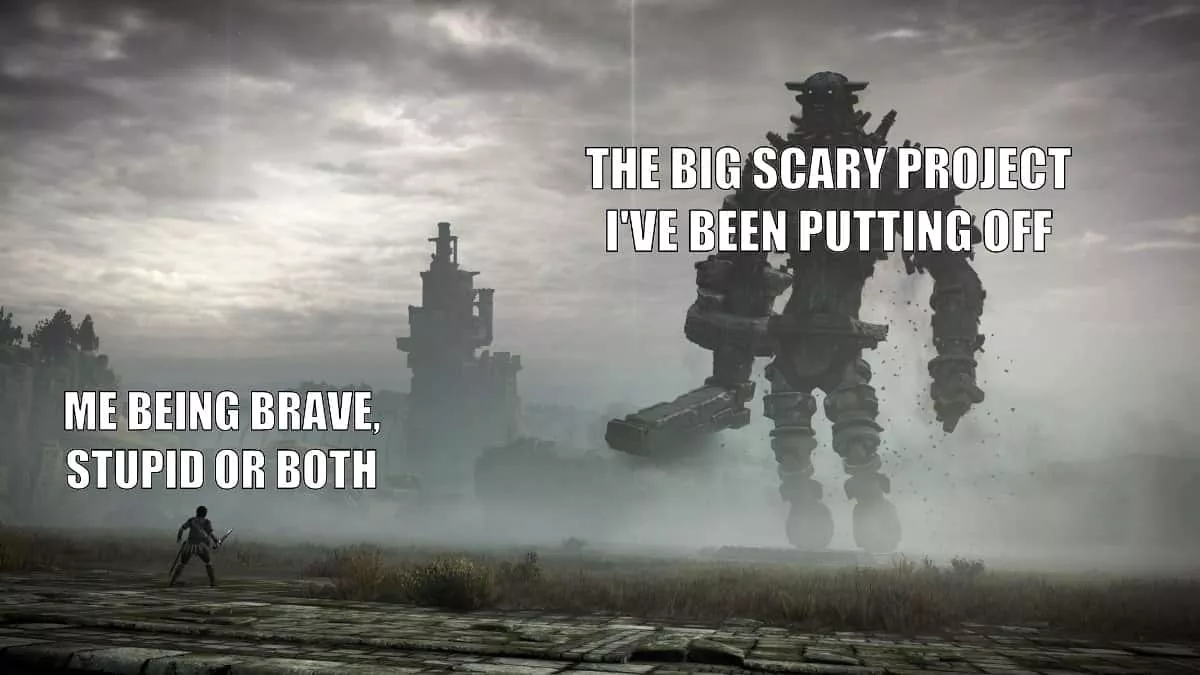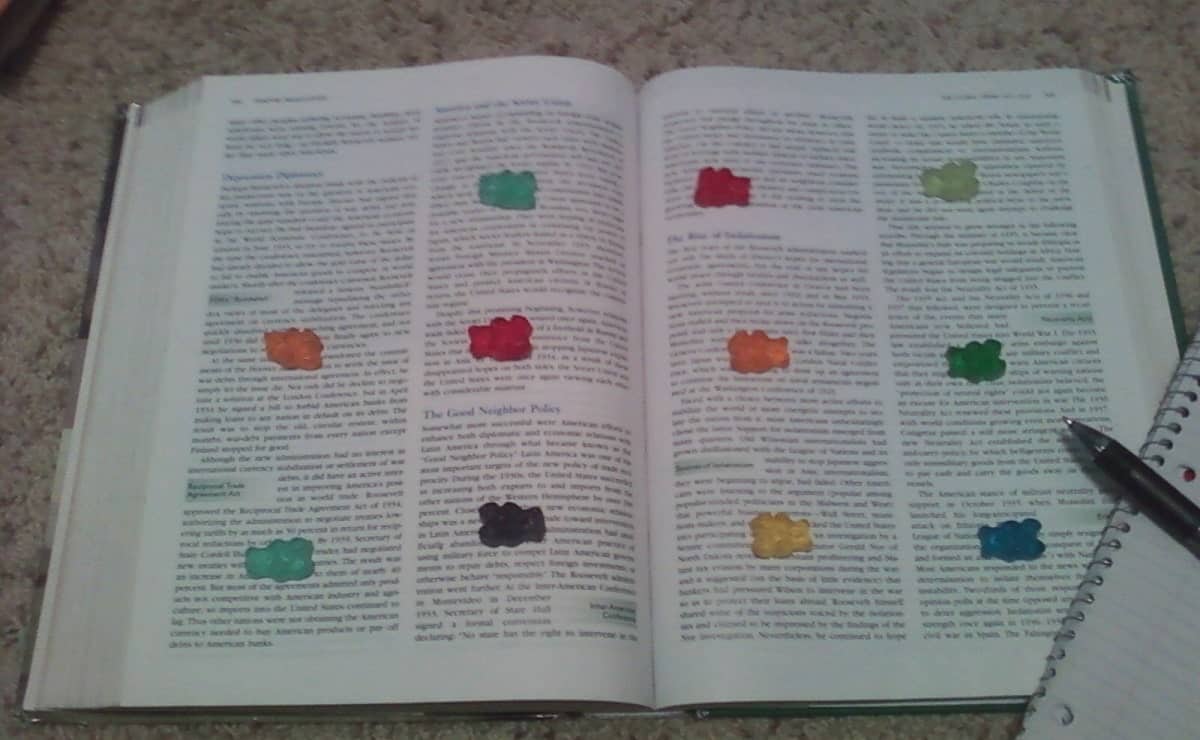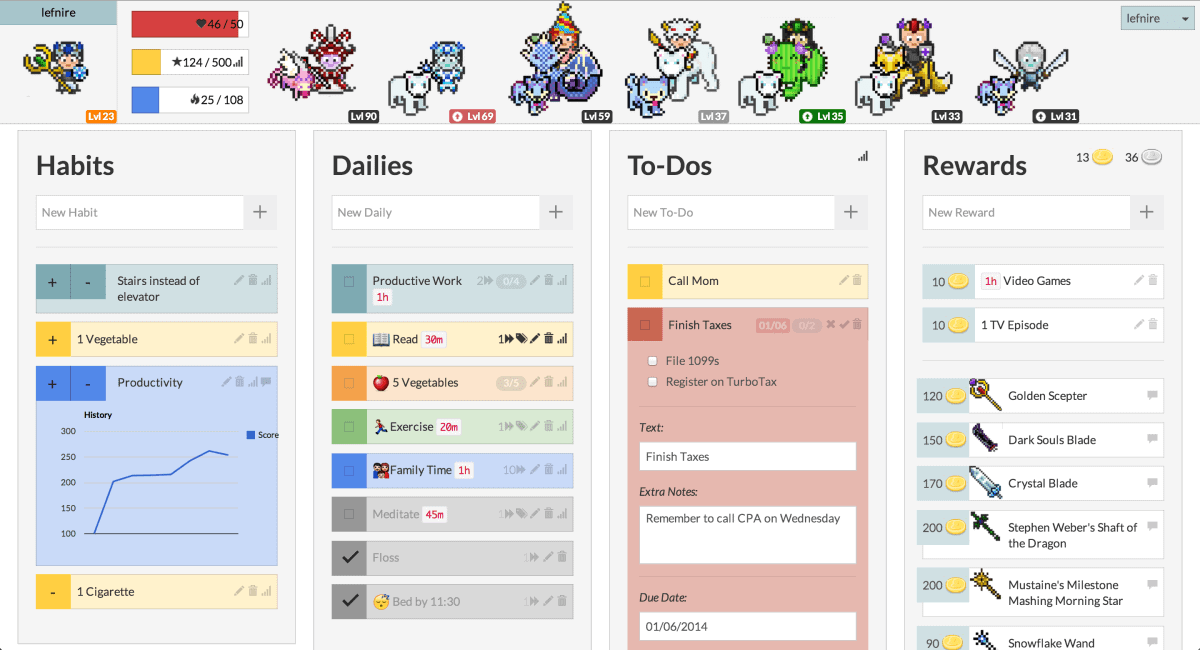
Sure, life is beautiful and has much to offer. But sometimes the rat race gets kind of, well… boring.
Most of us have some form of daily routine of juggling personal and professional responsibilities. As adults we go through life as life is. Sometimes our drive and motivation tank run empty.
But what if there was a way to change the way the world looks? A way to turn all that monotony into a fun adventure. To get more done, and to even enjoy the doing.
Where freelance contracts are no longer just tasks, they’re quests. Clients are NPC quest givers. Smaller projects are sub-quests.
Yup, I’m talking about gamifying your life to supercharge your productivity.
In short, gamification is turning something into a game. Difficult tasks become quests.
Gamification is psychologically proven to work because it creates a feeling of reward each time a task is completed, however small it may be.
This is because gaming achievements give us a hit of that sweet, sweet dopamine – the chemical in our brain responsible for our happiness and motivation.
In fact, it’s so potent that a study done in 1998 shows dopamine levels doubling in patients when they played video games. If you ever wonder why gamers enjoy sitting in front of a computer, fully focused, grinding away hours on both menial tasks and tedious challenges – that’s why!
If people are willing to spend so much effort on virtual achievements solely for a dopamine rush, imagine how much more productive people could be if that was real life.
In fact, many freelancers do gamify their careers to supercharge their productivity. They’ll add wonder, fantasy and excitement into their ‘boring’ old daily lives and be the main character of their own story.
I know it seems kind of kooky, but bear with me, try out these tips on how to isekai yourself, your productivity will thank me later for it.
Gamification has been shown to be an effective learning tool by creating experiences that fully engage learners.
This makes it a perfect tool in moving towards career and personal growth!
So, how does gamification make users more invested in their performance?

So why do games make doing the same thing over and over for hours, fun?
There are 5 factors to this.
Everyone loves to level up and get stronger. An experience points system gives us a tangible measurement to reach that goal.
In RPGs, players will put in 3 hours of effort to mindlessly grind for that extra 5% to level up.
Quests give players something to work towards. They are goals to reach, and leveling up through experience points supplements this.
Main quests and side quests can be seen as long and short term goals. A main quest could be one of your bigger contracts and a side quest is something like chores.
Thinking of a boring job as a quest gives it an extra bit of fun, it’ll make the process more enjoyable for you.
Players are rewarded for their efforts, regardless of the size. Of course the bigger the effort, the bigger the prize.
Rewards in games come in all shapes and sizes – money, fancy new equipment, experience, etc.
Implementing this rewarding system based on effort in real life keeps you motivated. Just finished your chores? Have a chocolate bar.
Just finished a big project? You’ll be rewarded with money and experience from the client quest giver. You could even break the big project into smaller quests and reward yourself for reaching milestones.
For example, ordering a pizza for dinner after 10% completion, scoring yourself a 3 hour gaming session with a 20% completion, etc etc.
Humans are wildly curious by nature. We want to know what happens next, all the time.
I mean, don’t you hate cliffhangers so much? I’d personally go on 10 hour binges if the show or game keeps ending on a (?).
Incorporating this sense of curiosity in the next upcoming freelance quest keeps us motivated and intrigued to keep going further.
Ever played Dark Souls?
The series is one of the most notoriously difficult franchises in the gaming industry. Yet it’s also one of the biggest modern day classics. It’s so difficult that people die up to 50 times in the tutorial alone. You’d think they’d just smash the controller and get a refund on the game…
BUT
For some reason, we’re all masochistic enough to keep wanting to play more, spending hours on a mini boss. When people finish the game, they start again, and even give themselves handicaps (eg, don’t get hit by enemies / finish the game without a weapon).
Why does this phenomena happen?
Because humans enjoy periods of extreme challenge! The rush that comes after completing it is downright euphoric. By taking your big projects as one of these Dark Souls’ type bosses, you don’t dread the challenge of a long contract but instead enjoy the experience of overcoming it.
There are many methods people use to gamify aspects of their life. As games can be anything we want it to be, it takes only a bit of imagination to come up with something unique.
Of course, there are a few very popular methods amongst the gamification community. These methods are loved because not only are they really easy to do, they’re also extremely effective.
Gamifying something is actually quite simple. First of all, you need to define your goals, making sure they’re specific and tangible.
For each of your goals, attach a certain number of points depending on how important or difficult it is to accomplish. This will be like putting experience points on your own personal questing system.
The bigger quests can be further broken down into something called a quest line. It’s essentially a big saga-style quest that consists of a small series of quests. For example, completing a contract with a client can be split into…
So on and so forth…
Track your progress by writing down your daily accomplishments and then comparing your progress over time.
Then, reward yourself once you’ve reached a set number of points. For example, after 1000 points and you’ve “levelled up”, treat yourself to some online shopping or fancy takeout.
Mini-games for productivity can be anything your imagination wills. Personally, as a writer, words ironically tire me out sometimes, especially when it boils down to heavy reading and research. I used to goof off a lot until I made the perfect mini-game for myself.
I would line up gummy bears on specific segments of my book and slowly but surely arrive to devour each poor soul one by one, like a hungry deity raining hell on innocent GummyLand.

Another mini-game I thought of was back in college. I would procrastinate massively and (unintentionally) skip classes. I needed something to keep me updated with my projects, something to motivate me. My solution was a repurposed drinking game.
You know that one game where you drink if someone does/says something?
“Take a shot whenever Rick says Wubba-lubba-dubb-dubb.”
It was something like that, but my game was that anytime my housemate said or did anything dumb and ridiculous, I’d sit down and do my work for 10 minutes straight.
… I made the Dean’s list that year.
What I’m trying to say is you can gamify any aspect of your life you want to boost productivity. There are no predetermined games that you have to play in order to achieve this. It all depends on you. How you identify the problem, and what creative gamification methods you can come up with to solve it.

There are a tonne of apps and online tools designed specifically to help you gamify your life.
Gamification apps help you record and track your tasks and goals, and give you a sense of achievement. Most of these apps even have the aesthetics of an old school RPG, so doing laundry feels like fighting a mob of undead warriors!
Great gamification apps off the top of my head are Habitica and Level Up Life. Give them a try, and you’ll see what I’m talking about.
These apps add a twist to your daily to-dos with awesome graphics, and marrying reality with just a bit of imagination. They’ll also give you a tangible way to measure progress through experience bars and rewards.
E.g., once you finish your chores, you gain 1000 experience points. With that, you’ll level up, get stronger, gain better equipment and finally be able to challenge the dragon; represented by that huge ugly project you’ve been putting off.
Gamifying the boring parts of your life makes the tasks seem more fun. By taking difficult challenges as games, you’re more carefree and productive.
By doing so, you’re also training your creativity. You give yourself unique ways to be more invested in your performance and feel more focused on your projects and goals.
In essence, gamification is your own ability to utilize your psychology to improve yourself. What’s there not to love?
David is a content creator and freelancer. His journey started with writing songs, poetry and academic dissertations in Vancouver. David has freelanced for multiple companies around the world. Feel free to connect with him on LinkedIn.